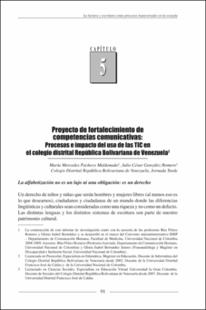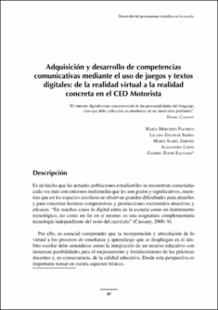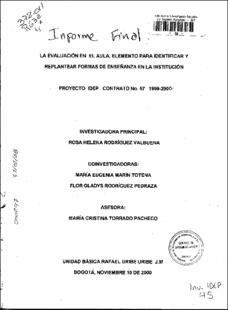María Pacheco
![1868 [[Lithography|lithograph]] of Pacheco](https://upload.wikimedia.org/wikipedia/commons/e/ed/1868%2C_Mugeres_c%C3%A9lebres_de_Espa%C3%B1a_y_Portugal%2C_Mar%C3%ADa_Pacheco%2C_AB196_0449_%28cropped%29.jpg) María López de Mendoza y Pacheco (–1531) was a Castilian revolutionary who led the Revolt of the Comuneros in the Kingdom of Toledo.
María López de Mendoza y Pacheco (–1531) was a Castilian revolutionary who led the Revolt of the Comuneros in the Kingdom of Toledo.Born into the House of Mendoza in the Kingdom of Granada, she was given a classical education and oversaw management of the palace of Alhambra. Her father, Íñigo López de Mendoza, a proponent of religious tolerance and secular authority against the Spanish Inquisition, arranged her to be married to Juan López de Padilla, an ''hidalgo'' from the Kingdom of Toledo. There she took over management of the Padilla estate, while her husband campaigned for the rights of the petty nobility against the foreign rule of Carlos I.
Following the outbreak of the Revolt of the Comuneros in 1520, she attempted to get her brother elected as the Archbishop of Toledo, but was blocked by another faction of the ''comuneros''. After the ''comunero'' defeat at the Battle of Villalar, her husband was executed and she subsequently took command of the revolt in Toledo. She drew popular support for the cause and oversaw the reinforcement of the city's defences, ultimately resulting in negotiations ending with the royalists granting Toledo generous concessions. When the royalists reneged on the agreed terms, Toledo revolted again. As royalists called for Pacheco's head, she fled the city in disguise. She went into exile in Portugal, where she died.
She was denounced for insanity and witchcraft by contemporary Castilian chroniclers, while the Castilian state demolished her headquarters and salted the earth, leaving behind a monument to the defeat of the ''comuneros''. In the modern period, her legacy has been reinterpreted, depicting her as an early advocate of social equality and human rights. Provided by Wikipedia
1
by:
Pacheco, María, González, Julio César, Pacheco, María, González, Julio César
Published in: La lectura y la escritura como procesos transversales en la escuela : Experiencias innovadoras en Bogotá.
Published in: La lectura y la escritura como procesos transversales en la escuela : Experiencias innovadoras en Bogotá.
Fuente: Repositorio digital
2
by:
Pacheco, María Mercedes, Escobar Sierra, Liliana, Jiménez, Marta Isabel, López, Alexandra, Salgado, Gabriel David
Published in: Desarrollo del pensamiento científico en la escuela : Proyecto Innovación en Formación Científica (2012)
Published in: Desarrollo del pensamiento científico en la escuela : Proyecto Innovación en Formación Científica (2012)
Fuente: Repositorio digital
Tipo de Material: Libro
3
by:
Rodríguez Valbuena, Rosa Helena, Marín Totena, María Eugenia, Rodríguez Pedraza, Flor Gladys, Torrado Pacheco, María Cristina, Unidad Básica Rafael Uribe Uribe J.M.
Published: 2000
Published: 2000
Fuente: Repositorio digital
Tipo de Material: Informe de investigación
4
Other Authors:
Bogoya Maldonado, Daniel.
Vinent Solsona, Manuel
Restrepo Forero, Gabriel
Torrado Pacheco, Maria Cristina
Jurado Valencia, Fabio
Published: 2000
Published: 2000
Fuente: Catálogo bibliográfico
Other Authors: ';
“...Torrado Pacheco, Maria Cristina...”
Tipo de Material: Book
5
by:
Rodríguez, Adriana Marcela
Other Authors:
López, Alexandra
Carrillo, Claudia Rocio
Fajardo, Cenaida
Salgado, Gabriel David
Méndez, Isabel
Rodríguez López, Jorge
Montoya, Farfán, Javier
Torres Ardila, Juan Carlos
Quimbay, Leila Rocio
Escobar Sierra, Liliana
Jiménez, María Isabel
Cepeda, Martha
González de Rueda, Martha
Pinilla, María Rocío
Ruiz Aguilar, Marleny
Venera de la Hoz, Mariluz
Pacheco, María Mercedes
Salamanca López, Omar Humberto
Ruiz Murcia, Óscar Raúl
Amaya Tarazona, Pablo
Ramírez, Ruby Esperanza
Arciniegas, Silvia
Sánchez Pabón, Yanet
Published: 2012
Published: 2012
Fuente: Catálogo bibliográfico
Other Authors: ';
“...Pacheco, María Mercedes...”
Tipo de Material: Book




